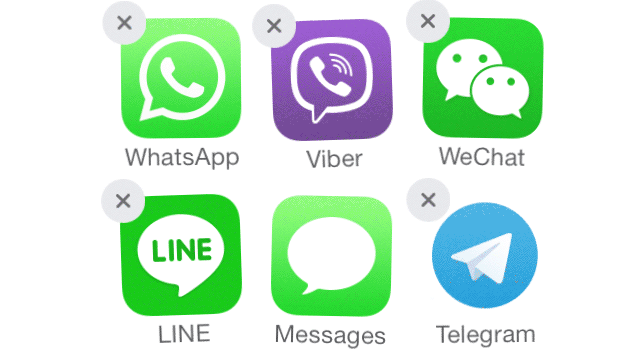By Hannah Howell
From the headlines coming out of the Consumer Electronics Show, it seems like voice interfaces are everywhere, or will be soon. But a new Sabre Labs survey shows voice isn’t being universally embraced.
“Alexa, what’s the weather like?” is rarely being asked by anyone under 22 years old.
In the Q4 2016 survey of over 300 members of Generation Z—individuals born between 1995 and 2010—respondents indicated they strongly prefer using messaging interfaces like Snapchat and Facebook Messenger over voice interfaces like Alexa and Siri.
The survey looks at how Gen Z uses emerging technologies such as messaging apps, voice assistants, and virtual and augmented reality, particularly in regards to travel. The survey results augment Sabre Labs’ Emerging Tech in Travel Report.
While the report makes recommendations for how the travel industry can leverage emerging technologies, it doesn’t focus on Gen Z because its members won’t be a significant part of travel spending in 2017. But it won’t be long before Gen Z is a notable percentage of travel spend, so it’s important to understand how its members use technology and what they’re using it for.
Messaging apps
Messaging apps Snapchat, iMessage, Skype, and Facebook Messenger are the top used messaging tools for Gen Z, in that order. These individuals have grown up texting and connecting with friends through social media, so it’s not a surprise that 57 percent use messaging apps at least half the time they use their phones.
 But they aren’t just connecting with friends and family: 26 percent have used a messaging app to talk to a business. This represents an opportunity for hoteliers, agencies/OTAs, and airlines to engage with Gen Z on messaging platforms and to strengthen rapport with a growing segment of their customer base.
Voice assistants
With only 9 percent of Generation Z using voice assistants like Siri or Alexa on a daily basis, voice currently isn’t a preferred technology for this group. We suspect several causes for this lack of utilisation. The majority of this generation isn’t able to drive yet and therefore, seldom needs a hands-free interface.
They are also texting natives and can likely text with more speed and accuracy than by using a voice assistant to complete the same task. The travel industry should keep an eye out for the usage of voice assistants among this generation as it may change over time when (and if) they begin to drive or have other reasons for hands-free use.
Virtual Reality
Virtual Reality devices like Google Cardboard, Oculus Rift, and Samsung Gear have made their way into the hands of Gen Z. Of those surveyed, 41 percent have tried VR and 12 percent use it on a daily or weekly basis. We suspect this percentage has grown recently with Playstation VR sales through the holidays.
As more and more Gen Z individuals try virtual reality, their expectations on how to shop are expected to change. Hoteliers, airlines, and agencies/OTAs should focus on product-level and excursion VR videos to market to this generation.
Augmented Reality
Of those surveyed, 74 percent have tried augmented reality (AR) and 15 percent use it on a daily or weekly basis. Less than 1 percent of respondents have tried premier AR experiences like the Microsoft Hololens. But phone-based AR is widespread, with Pokemon Go (71% of all survey respondents), Google Translate (33%), and stargazing apps (25%) the most common AR experiences.
AR navigation apps are making it easier to find locations and attractions in cities.
Sabre Labs expects an increase in apps and games featuring location-specific digital content that can only be accessed through AR. This new digital content provides travellers another layer of engagement and information throughout their journeys. This includes digital art installations, scavenger hunts, archived collections of media to add context to historic locations, and countless other possibilities.
Planning for the future
To reach Gen Z, the travel industry will need to leverage messaging platforms for shopping, booking, and service and support. Suppliers should capture virtual reality content to showcase properties, cabins, and lounges as this generation, more than others, will expect immersive shopping experiences.
With Gen Z increasingly using augmented reality, we expect to see an increase in location-specific digital content that will add an additional layer to tourism. Sabre Labs continues to keep an eye out for the use of voice assistants among this generation.
For more insights on how emerging technology is impacting the travel industry (across all generations), download the Emerging Tech in Travel Report.
But they aren’t just connecting with friends and family: 26 percent have used a messaging app to talk to a business. This represents an opportunity for hoteliers, agencies/OTAs, and airlines to engage with Gen Z on messaging platforms and to strengthen rapport with a growing segment of their customer base.
Voice assistants
With only 9 percent of Generation Z using voice assistants like Siri or Alexa on a daily basis, voice currently isn’t a preferred technology for this group. We suspect several causes for this lack of utilisation. The majority of this generation isn’t able to drive yet and therefore, seldom needs a hands-free interface.
They are also texting natives and can likely text with more speed and accuracy than by using a voice assistant to complete the same task. The travel industry should keep an eye out for the usage of voice assistants among this generation as it may change over time when (and if) they begin to drive or have other reasons for hands-free use.
Virtual Reality
Virtual Reality devices like Google Cardboard, Oculus Rift, and Samsung Gear have made their way into the hands of Gen Z. Of those surveyed, 41 percent have tried VR and 12 percent use it on a daily or weekly basis. We suspect this percentage has grown recently with Playstation VR sales through the holidays.
As more and more Gen Z individuals try virtual reality, their expectations on how to shop are expected to change. Hoteliers, airlines, and agencies/OTAs should focus on product-level and excursion VR videos to market to this generation.
Augmented Reality
Of those surveyed, 74 percent have tried augmented reality (AR) and 15 percent use it on a daily or weekly basis. Less than 1 percent of respondents have tried premier AR experiences like the Microsoft Hololens. But phone-based AR is widespread, with Pokemon Go (71% of all survey respondents), Google Translate (33%), and stargazing apps (25%) the most common AR experiences.
AR navigation apps are making it easier to find locations and attractions in cities.
Sabre Labs expects an increase in apps and games featuring location-specific digital content that can only be accessed through AR. This new digital content provides travellers another layer of engagement and information throughout their journeys. This includes digital art installations, scavenger hunts, archived collections of media to add context to historic locations, and countless other possibilities.
Planning for the future
To reach Gen Z, the travel industry will need to leverage messaging platforms for shopping, booking, and service and support. Suppliers should capture virtual reality content to showcase properties, cabins, and lounges as this generation, more than others, will expect immersive shopping experiences.
With Gen Z increasingly using augmented reality, we expect to see an increase in location-specific digital content that will add an additional layer to tourism. Sabre Labs continues to keep an eye out for the use of voice assistants among this generation.
For more insights on how emerging technology is impacting the travel industry (across all generations), download the Emerging Tech in Travel Report.

 But they aren’t just connecting with friends and family: 26 percent have used a messaging app to talk to a business. This represents an opportunity for hoteliers, agencies/OTAs, and airlines to engage with Gen Z on messaging platforms and to strengthen rapport with a growing segment of their customer base.
Voice assistants
With only 9 percent of Generation Z using voice assistants like Siri or Alexa on a daily basis, voice currently isn’t a preferred technology for this group. We suspect several causes for this lack of utilisation. The majority of this generation isn’t able to drive yet and therefore, seldom needs a hands-free interface.
They are also texting natives and can likely text with more speed and accuracy than by using a voice assistant to complete the same task. The travel industry should keep an eye out for the usage of voice assistants among this generation as it may change over time when (and if) they begin to drive or have other reasons for hands-free use.
Virtual Reality
Virtual Reality devices like Google Cardboard, Oculus Rift, and Samsung Gear have made their way into the hands of Gen Z. Of those surveyed, 41 percent have tried VR and 12 percent use it on a daily or weekly basis. We suspect this percentage has grown recently with Playstation VR sales through the holidays.
As more and more Gen Z individuals try virtual reality, their expectations on how to shop are expected to change. Hoteliers, airlines, and agencies/OTAs should focus on product-level and excursion VR videos to market to this generation.
Augmented Reality
Of those surveyed, 74 percent have tried augmented reality (AR) and 15 percent use it on a daily or weekly basis. Less than 1 percent of respondents have tried premier AR experiences like the Microsoft Hololens. But phone-based AR is widespread, with Pokemon Go (71% of all survey respondents), Google Translate (33%), and stargazing apps (25%) the most common AR experiences.
AR navigation apps are making it easier to find locations and attractions in cities.
Sabre Labs expects an increase in apps and games featuring location-specific digital content that can only be accessed through AR. This new digital content provides travellers another layer of engagement and information throughout their journeys. This includes digital art installations, scavenger hunts, archived collections of media to add context to historic locations, and countless other possibilities.
Planning for the future
To reach Gen Z, the travel industry will need to leverage messaging platforms for shopping, booking, and service and support. Suppliers should capture virtual reality content to showcase properties, cabins, and lounges as this generation, more than others, will expect immersive shopping experiences.
With Gen Z increasingly using augmented reality, we expect to see an increase in location-specific digital content that will add an additional layer to tourism. Sabre Labs continues to keep an eye out for the use of voice assistants among this generation.
For more insights on how emerging technology is impacting the travel industry (across all generations), download the Emerging Tech in Travel Report.
But they aren’t just connecting with friends and family: 26 percent have used a messaging app to talk to a business. This represents an opportunity for hoteliers, agencies/OTAs, and airlines to engage with Gen Z on messaging platforms and to strengthen rapport with a growing segment of their customer base.
Voice assistants
With only 9 percent of Generation Z using voice assistants like Siri or Alexa on a daily basis, voice currently isn’t a preferred technology for this group. We suspect several causes for this lack of utilisation. The majority of this generation isn’t able to drive yet and therefore, seldom needs a hands-free interface.
They are also texting natives and can likely text with more speed and accuracy than by using a voice assistant to complete the same task. The travel industry should keep an eye out for the usage of voice assistants among this generation as it may change over time when (and if) they begin to drive or have other reasons for hands-free use.
Virtual Reality
Virtual Reality devices like Google Cardboard, Oculus Rift, and Samsung Gear have made their way into the hands of Gen Z. Of those surveyed, 41 percent have tried VR and 12 percent use it on a daily or weekly basis. We suspect this percentage has grown recently with Playstation VR sales through the holidays.
As more and more Gen Z individuals try virtual reality, their expectations on how to shop are expected to change. Hoteliers, airlines, and agencies/OTAs should focus on product-level and excursion VR videos to market to this generation.
Augmented Reality
Of those surveyed, 74 percent have tried augmented reality (AR) and 15 percent use it on a daily or weekly basis. Less than 1 percent of respondents have tried premier AR experiences like the Microsoft Hololens. But phone-based AR is widespread, with Pokemon Go (71% of all survey respondents), Google Translate (33%), and stargazing apps (25%) the most common AR experiences.
AR navigation apps are making it easier to find locations and attractions in cities.
Sabre Labs expects an increase in apps and games featuring location-specific digital content that can only be accessed through AR. This new digital content provides travellers another layer of engagement and information throughout their journeys. This includes digital art installations, scavenger hunts, archived collections of media to add context to historic locations, and countless other possibilities.
Planning for the future
To reach Gen Z, the travel industry will need to leverage messaging platforms for shopping, booking, and service and support. Suppliers should capture virtual reality content to showcase properties, cabins, and lounges as this generation, more than others, will expect immersive shopping experiences.
With Gen Z increasingly using augmented reality, we expect to see an increase in location-specific digital content that will add an additional layer to tourism. Sabre Labs continues to keep an eye out for the use of voice assistants among this generation.
For more insights on how emerging technology is impacting the travel industry (across all generations), download the Emerging Tech in Travel Report.

